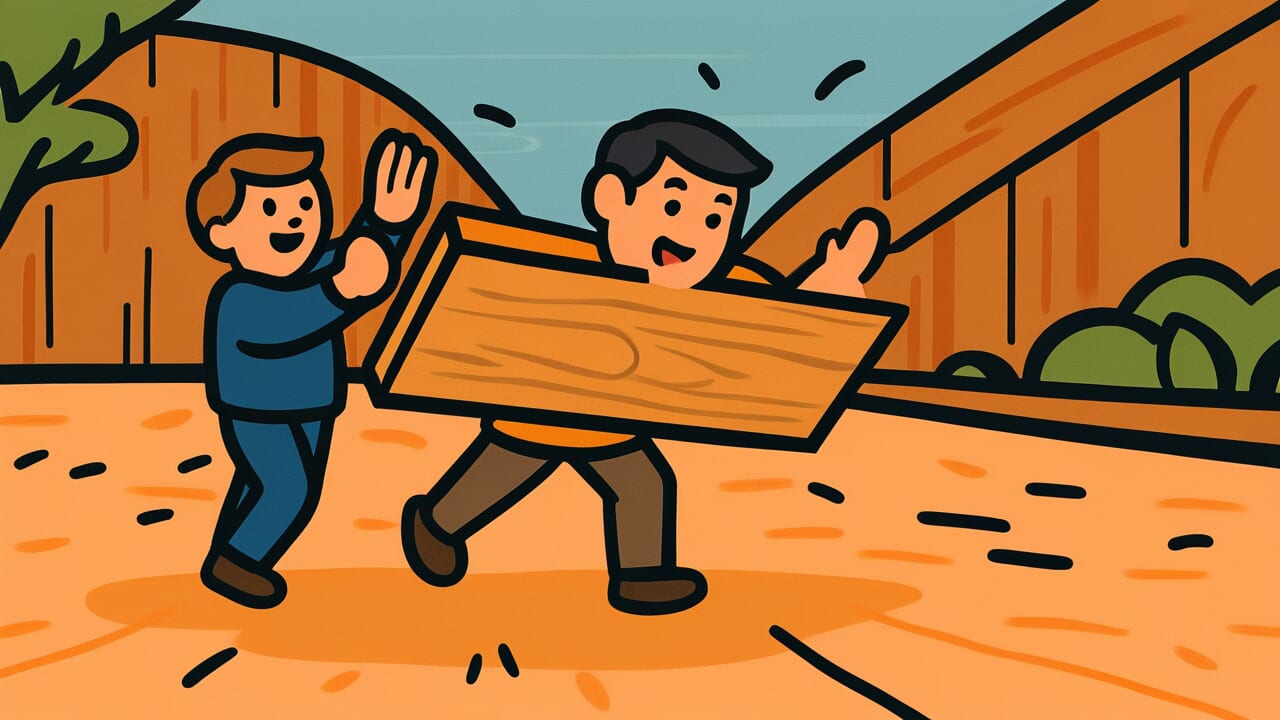How to Read “Throwing firewood in October”
じゅうがつのなげき
Meaning of “Throwing firewood in October”
“Throwing firewood in October” is a traditional saying that the tenth month of the old calendar is when trees take root well, making it the best time for transplanting.
During this period, transplanting trees is so successful that they will take root even if you handle them roughly, as if throwing them into the ground.
This proverb has been used mainly in gardening and farming contexts. When planning to replant garden trees or transplant fruit trees, people would say “It’s throwing firewood in October” to justify choosing this timing.
During this season, trees enter their dormant period and lose less moisture through evaporation. This gives the roots time to adapt to their new environment, minimizing transplanting stress.
Even today, gardening and tree specialists recommend transplanting from autumn to early winter. This proverb shows the deep understanding of nature’s principles that people accumulated through experience, even without scientific knowledge.
Origin and Etymology
No clear written records explain the origin of this proverb. However, it likely emerged from Japanese agricultural culture and the seasonal awareness of the old calendar.
The tenth month of the old calendar corresponds to around November today, when trees shed their leaves and enter dormancy.
During this time, plants stop growing above ground and store nutrients in their roots. One theory suggests “throwing wood” refers to planting trees by tossing them with their root ball intact.
This means transplanting succeeds so easily during this period that you don’t need to handle the trees carefully.
In Japanese agriculture and gardening, wisdom about identifying the best time for transplanting has been passed down through generations.
If you transplant trees during spring budding or hot summer, they often die. Water evaporates from the leaves before the roots can establish themselves properly.
However, around the tenth month of the old calendar, temperatures drop and trees enter dormancy. This gives the roots time to settle into the new soil.
This proverb represents the crystallization of our ancestors’ keen observation. It teaches the importance of reading nature’s rhythms and following them.
Usage Examples
- The gardener suggested we transplant the cherry tree now, saying it’s throwing firewood in October
- My grandfather believed in throwing firewood in October and replanted fruit trees every year during this season
Universal Wisdom
The proverb “Throwing firewood in October” contains a universal truth about the importance of timing.
Even the right action will fail if you choose the wrong time. Conversely, if you select the right moment, you can achieve maximum results with minimum effort.
This wisdom applies not just to transplanting trees, but to every aspect of life.
People often try to start things based on their own convenience or sudden impulses. However, nature has its own rhythm, and life has its own right moments.
If you rush and force things, you end up spending more effort with poor results. On the other hand, if you wait patiently and act at the optimal timing, things proceed surprisingly smoothly.
This proverb has been passed down for so long because people have confirmed this truth repeatedly through experience.
When starting a new challenge, building relationships, or making important decisions, we must constantly ask ourselves, “Is now the right time?”
Our ancestors developed the value of waiting and the ability to identify good opportunities by observing nature’s workings.
This wisdom may be something we need to remember especially in modern times, which emphasize efficiency and speed.
When AI Hears This
Our brains trying to find meaning in a non-existent proverb are actually working against a fundamental law of the universe.
According to the second law of thermodynamics, everything naturally moves toward disorder if left alone. Just as milk spontaneously mixes into coffee, information also scatters over time.
Yet when we see a meaningless string of words like “Throwing firewood in October,” our brains desperately start searching for patterns.
Maybe October is autumn so it’s about dead trees, or perhaps the act of throwing has symbolic meaning. This is an act of imposing order on scattered information, consuming energy against physical laws.
What’s fascinating is that a hundred people can create a hundred different interpretations of these meaningless words.
In other words, we can create countless orders from random information. This is what information theory calls a “maximum entropy state,” possessing ultimate freedom that can transform into any meaning.
When we understand something, we’re actually converting high-entropy information into low-entropy meaning.
A non-existent proverb becomes a device that visualizes this conversion process itself. We don’t usually notice the energy cost our brains consume to create meaning.
However, this fictional proverb teaches us how unnatural, and therefore precious, the act of understanding truly is.
Lessons for Today
“Throwing firewood in October” teaches modern people the importance of following nature’s rhythms.
When we try to start something, we tend to decide the timing based only on our own convenience. However, there is a “right time” for everything.
Taking on a new job, repairing relationships, improving lifestyle habits. For anything, identifying when preparations are complete and the environment supports you dramatically increases your chances of success.
If you rush and force things, you’ll spend extra effort and exhaust your spirit.
Modern society is dominated by values like “right now” and “efficiently.” However, the more important something is, the more patience you may need to wait for the right time.
Observe the situation around you, prepare your own heart, and when the optimal timing arrives, take bold action.
This proverb quietly teaches us a way of living that stays close to nature.



Comments